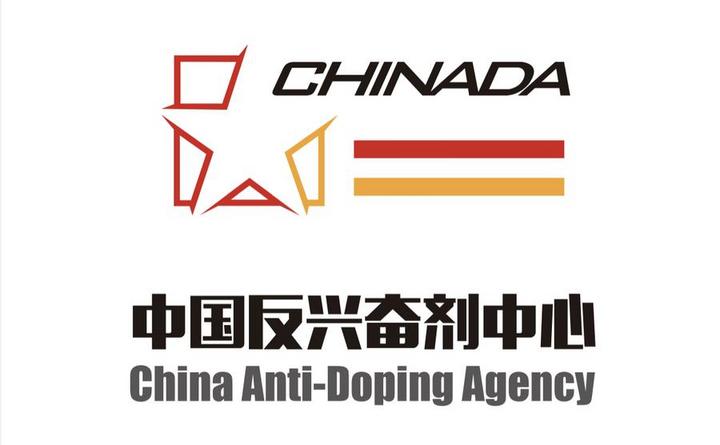
The logo of the China Anti-Doping Agency. [CHINADA/Handouts via Xinhua]
With the Asian Winter Games officially underway in Harbin, capital of Heilongjiang province, the intense action is matched by an equally rigorous commitment to anti-doping, ensuring that athletes compete in a clean and fair environment.
The Olympic Council of Asia is overseeing the anti-doping measures for this year's Games, entrusting the International Testing Agency with the development of the testing protocols, therapeutic use exemption reviews, results management and intelligence sharing. The China Anti-Doping Agency will handle sample collection, while the Beijing Anti-Doping Laboratory will be responsible for analyzing them.
Zhou Jinqiang, vice-chairman of the Asian Winter Games organizing committee and vice-chairman of the Chinese Olympic Committee, noted that anti-doping initiatives are a fundamental part of any major international sporting event.
The Games will strictly adhere to OCA regulations, with seven doping control stations strategically placed across the competition venues and the athletes' villages. Athletes may be tested at any time, and at any location, without notice in advance. A team of 55 doping control officers, both domestic and international, oversee the process, according to Zhou.
In an effort to foster awareness and education, the Games have established anti-doping outreach stations in Harbin and Yabuli. These stations will host a range of engaging activities aimed at educating athletes and participants about anti-doping, while reinforcing the values of fair competition and sportsmanship.
The organizing committee has also put in place stringent measures to address food, medical and drug-related doping risks. A comprehensive prevention system has been created to ensure the safety of athletes' nutrition, treatment and medication throughout the event, Zhou said.
Ahead of the Asian Winter Games, Doping Control Coordination Center of the Games has taken proactive measures to ensure robust testing protocols by commissioning a team of experts from the China Anti-Doping Agency to inspect seven key doping control stations, including the Heilongjiang Ice Training Center, Harbin Ice Hockey Stadium, Harbin Sport University Ice Skating Rink, and the Pingfang District Curling Arena in Harbin.
The experts identified several areas for improvement, offering recommendations to enhance the testing experience for athletes. These included suggestions on optimizing station layouts, upgrading facilities and improving overall efficiency.
Zhang Yan, deputy commander of the anti-doping command center, assured that venue teams would work closely with the experts to implement these changes, ensuring that all stations are fully operational, secure and in compliance with established standards, providing solid anti-doping support for the Games.
Additionally, a training session was held for venue coordinators, where experts outlined their roles, responsibilities and operational workflows. The session also included the sharing of insights and best practices derived from previous international events, equipping the team with the knowledge and skills needed to maintain the integrity of the testing process.
The Heilongjiang provincial quality supervision and testing research institute is leading the charge on food-related anti-doping testing for the Asian Winter Games. Over the course of two-and-a-half months, the team analyzed more than 110 samples, performing nearly 2,100 individual tests. They successfully established a testing system for 60 foodborne doping substances, passing rigorous inter-laboratory validation.
"Every minute of those two-and-a-half months was incredibly valuable," said Li Donggang, deputy director of the institute. "Given the volume of samples and the complexity of the tests, failure was a frequent challenge, but the team remained relentless."
In line with the organizing committee's anti-doping plan, the institute dispatched specialists to conduct random checks on animal-based food products — pork, beef, lamb and fish-across regions in the Inner Mongolia and Xinjiang Uygur autonomous regions, and Heilongjiang province.
They also tested a range of other foodstuffs, including soy sauce, vinegar, curry, coffee, cashews and blueberry jam provided by food suppliers for the Games. Samples were swiftly delivered to the laboratory for testing, following strict guidelines to preserve their integrity.
In a bid to ensure the quality of food-related anti-doping testing at the Asian Winter Games, the China National Accreditation Service for Conformity Assessment dispatched a team of technical experts to Harbin last month. The visit provided crucial on-site guidance to support the testing operations.
Contact the writer at liyingxue@chinadaily.com.cn